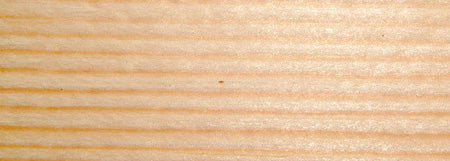
Just like a new car, a new acoustic guitar can have a great smell. The tonewoods chosen to make up a brand new instrument can give it some great smells. From western red cedar, Honduran mahogany, walnut, cocobolo, etc. each wood has it’s own unique character. Not only do these woods have a great smells but they also hold a purposed intent from the luthier to give your guitar the presence, definition and tone it holds inside.
When purchasing a new guitar it is important to consider the tone and response you are wanting. Just as a painter chooses colors to express the mood or feel of their masterpiece, so to should the musician consider the make up of the tools with which they work. Maybe it is your first guitar, maybe it is the back up or alternate tuned guitar. Perhaps you are needing something softer that bolsters your fingerpicking style or something cutting and tight that mixes well with a band. Whatever you need, it is good to know what you are working with. Here is a quick look at some of the most common tonewoods used by guitar builders and why they choose to put them on the beautiful creations they make.

Spruce: Lets start with the sound board, the most common tonewood used throughout history has been spruce. There is a reason for this; amongst the woods used in lutherie spruce has the longest of wood fibers. This means that spruce can flex farther, without fracturing, than other woods. The more that the soundboard can flex, the more volume and punch your guitar can have. Match this ability with the straightness of grain that a quarter-sawn piece of spruce has and you have a superior material for an instrument’s soundboard. Another great aspect of spruce is that it only gets better with age. The more you play a spruce topped instrument, the more it will give you. Have an old spruce topped guitar that hasn’t been played in a while? strum on it for a couple weeks and it will pop right back to life. From pianos, violin and other bowed instruments to fretted instruments, spruce is the number one wood chosen for the foundation of an instrument’s tone.

Cedar: Though other woods are used on the top of a guitar, cedar has to be the most common choice after spruce. Cedar is a softer wood with more natural oils than spruce. This softness also comes across in the presence of a cedar topped instrument and is a great choice for finger-style guitarists. The rich, aromatic oils in cedar accentuate the harmonic depth of the instrument too. The more oils the wood on your guitar has, the richer the tone and more harmonic content you can get out of the it. Though cedar lacks the acoustic definition and focus that spruce provides, there is a sweetness to its tonal quality that you just can’t achieve without it.

Mahogany: Most likely originally chosen for it’s fair market price in comparison to rosewood, many would usually see this as an entry or intermediate tonewood for the back and sides of a guitar, I would disagree. Mahogany is cutting, tight and punchy; it grabs your ear’s attention. Maybe not the singer/songwriter’s choice (unless you are early Neal Young and his D-18) a mahogany guitar is great for mixing with a band. The guitar in general has a mid toned voice, having a tonewood that portrays this is perfect and allows a stage filled with bass, electric, keys and other instrument to have their own place in the mix while still giving definition to your individual tone.

Rosewood: Rich, sweet, full and mature are words that come to mind when considering a rosewood instrument. Rosewood has a “scooped” tone. Scooped refers to what the average home stereo EQ looks like: Bass/Treble cranked and Mids dropped or “scooped” out. This natural EQ curve is great for accompanying vocals, singer/songwriter’s or even paired with cedar for the ultimate finger-style guitar. Because of its rich or “mature" tone, builders see this as a pinnacle tonewood for guitar making. Almost every builder’s “nicest” guitar in their lineup has rosewood on the back and sides.
Want to learn more about tonewoods and what makes a guitar perform the way it does? Simply stop by the shop any day of the week or give us a call at 541.323.2332




